Breakout session: A Fair and Just Future for Assessment?
This session will draw on the accounts of the future of assessment in the keynotes, as well as on the experience of participants, and will consider whether the future of assessment is fair or just. After briefly explaining their use of these concepts (including links with equality and equity), one presenter will offer an argument in support of the ways in which the future of assessment could be fairer and more just than the present or the past. The second presenter will then offer a counter-argument, voicing challenges and problems. The session will then be opened for discussion and for participants to decide on their own view.
Stuart D. Shaw, Honorary Professor of University College London in the Institute of Education - Curriculum, Pedagogy & Assessment
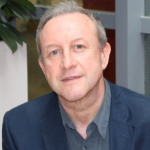
Stuart is Honorary Professor of University College London in the Institute of Education - Curriculum, Pedagogy & Assessment, and is currently an educational assessment researcher and consultant. Stuart has worked for international awarding organisations for over 20 years and is particularly interested in demonstrating how educational, psychological, and vocational tests seek to meet the demands of validity, reliability, and fairness.
He has a wide range of publications in English second language assessment and educational/psychological research journals and books (around 150 publications). Stuart is Chair of the Board of Trustees of the Chartered Institute of Educational Assessors (CIEA). He is also a Fellow of the CIEA. Stuart is a Fellow of the Association for Educational Assessment in Europe (AEA-Europe), an elected member of the Council of AEA-Europe, and is Chair of its Scientific Programme Committee. He is also an elected member of the Board of Trustees of the International Association for Educational Assessment (IAEA) and Chair of the IAEA Communications Committee.
Stuart regularly presents at British, European and International conferences and has given keynote presentations.
Stuart and co-author Isabel Nisbet are awaiting publication of their latest book entitled: ‘Educational Assessment in a Changing World: Lessons Learned and the Path Ahead’ (Routledge, 2nd half of 2024). The themes presented and analysed in the book cohere with the theme of the conference.
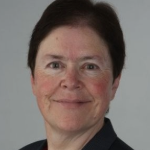
Isabel Nisbet, Educational Assessment Consultant
Isabel Nisbet’s professional career was in government and the regulation of education and medicine. She was the first CEO of Ofqual, the regulator of exams and qualifications in England. She is now active in consultancy and non-executive roles and has continued her academic interest in educational assessment and in the philosophy of education.
From 2021-2023 Isabel served on a panel appointed by the Government of Northern Ireland to carry out an independent review of all aspects of education in Northern Ireland. Their report was published in December 2023.
Isabel has served on the Boards of Governors of four universities in England and currently is Vice-Chair of Governors of the University of Bedfordshire. She served for 6 years on the Board of Qualifications Wales and is a member of the National Statistician’s Data Ethics Committee.
Isabel was the co-author, together with Stuart Shaw, of “Is Assessment Fair?”, published by SAGE in 2020. She is currently working with Stuart on “Educational Assessment in a Changing World: Lessons Learned and the Path Ahead”, which is due to be published by Routledge in late 2024.
Breakout session: AI and plagiarism
This session is aimed to inspire discussions around the role of AI in student plagiarism. Martina will aim to answer the following question - Did AI change plagiarism and if so – how? This session will give examples of AI-assisted student output and will hope to start a discussion about whether they should be considered plagiarism.
Martina will also briefly touch upon the purpose of assessment and how AI might be changing it.
Dr Martina Kuvalja, Senior Researcher, Education Directorate, Cambridge University Press & Assessment

Martina works as a Senior Researcher in the Education Directorate team. She manages their “AI and Learning” research sub-strand and provides research consultancy to product teams while making sure customers' needs and their well-being are at the heart of what we build and research. She is a reviewer and a member of the Cambridge University Press & Assessment Research Ethics Committee.
In the last 7 years in the organisation, Martina designed and managed numerous studies, ranging from research investigating the reliability of marking in high-stakes exams in the UK, to running evaluations of curriculum and examination reforms internationally. Previously, Martina worked as a consultant for several not-for-profit organisations, and as a postdoctoral researcher at the University of Cambridge. During that time, she also taught and supervised postgraduate students.
Martina has a PhD in Educational Psychology from the University of Cambridge, where she investigated the development of self-regulated learning and metacognition in children. Self-regulation and metacognition remain her research interests and she delivers workshops and talks for teachers, the assessment community and product teams on the topic. In the past, she has consulted product teams helping them run UX studies and develop digital learning and assessment products while ensuring they encouraged learners’ metacognition and self-regulated learning.
Breakout session: 10 things you can do in the classroom now with AI to support effective assessment
The principles of assessment remain constant, but the ways in which we conduct assessment are changing. George will walk you through 10 of the most effective ways that a classroom practitioner can use AI in support of effective assessment.
George Vlachonikolis, Assistant Head (Teaching and Learning), Headington School
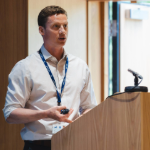
George is the Assistant Head (Teaching and Learning) at Headington School, Oxford.
An economics teacher at heart, George is also the Chair of Examiners for economics with one of the main exam boards in England and a textbook author with Cambridge University Press. George is also a graduate of the Postgraduate Advanced Certificate in Education (Educational Assessment) at Cambridge University (2022), and an ambassador for Cambridge Assessment Network.
Breakout session: The development of an accessibility framework to support Digital High Stakes exams
The development of digital high stakes exams provides an opportunity for Cambridge to enhance the accessibility of all digital assessment products for as many learners globally as possible. A digital exam allows for affordances that traditional paper pencil methods may not facilitate.
This session will summarise the thinking and associated research that has been taking place on accessibility considerations for digital exams through the development of a framework. The framework has been designed under five different principles of accessibility research and is primarily for use by assessment designers in the development process.
The session will define each accessibility principle with relevant examples and how these are underpinning several associated work strands linked to the digital exam strategy. Consideration is also given to universal design principles and the additional features given by digital assessment platforms to enhance the overall accessibility.
Sanjay Mistry, Head of Research for Digital Assessment and Evaluation at Cambridge University Press & Assessment, International Education
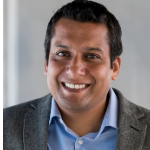
Sanjay Mistry is Head of Research for Digital Assessment and Evaluation at Cambridge University Press and Assessment, International Education.
The role involves leading on the definition of the research strategy that is pivotal to underpinning the organisation’s strategic roadmap for the development of various digital assessment products and services that serve the international and UK markets.
Sanjay also leads on projects around digital innovation, for example looking at digital assessment accessibility, global readiness for digital exams, assessment in the Early Years and what AI can bring to digital exams space. He joined Cambridge International in 2012 after a successful career in primary education leadership, as an Assessment Manager for Primary and Lower Secondary science and then moved position in 2015 to support the ambitious digital assessment plans of the organisation.
Breakout session: Equality, Diversity and Inclusion in assessment design
This session will reflect on the concepts of equity, diversity and inclusion and how to embed them in assessment design.
Dr Rebecca Conway, Educational Assessment Consultant
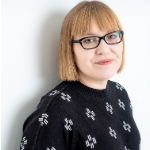
Rebecca is a freelance assessment consultant and a tutor and supervisor on the Cambridge Postgraduate Advanced Certificate in Educational Studies (Educational Assessment). With over ten years’ experience in assessment and vocational education policy, Rebecca has held specialist assessment roles at two awarding organisations and served as the former Head of Policy and Strategy for the Federation of Awarding Bodies.
She has a particular interest in inclusive and accessible assessment and has developed several training programmes on this topic as well as an EDI (Equality, Diversity, and Inclusion) action plan for awarding organisations.
Sarah Cottam, Senior Compliance Manager, Cambridge University Press & Assessment
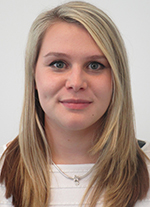
Sarah is a Senior Compliance Manager at Cambridge International and leads teams of experts in access arrangements, special considerations, coursework adaptations and safeguarding.
In over eight years working at Cambridge, Sarah has also managed access arrangement processes and coordinated centre inspections.
Sarah has recently completed the Postgraduate Advanced Certificate in Educational Studies: Educational Assessment at the University of Cambridge Faculty of Education.
Breakout session: AI in the ESL/EFL Classroom: A Student-Centered Exploration
The integration of AI and chatbots in education has undeniably brought both opportunities and challenges for teachers and students alike.
This presentation will share a real-world classroom experience, incorporating student opinions on AI integration. The challenges teachers face when designing assignments that leverage AI effectively in the ESL/EFL classroom will be explored.
By sharing this classroom experience, student opinions, and reflections on teacher challenges, the presentation aims to:
- Showcase the positive impact of AI on language learning.
- Identify areas where technology can empower educators and students.
- Spark discussion on effectively navigating the challenges of AI integration in the ESL classroom.
Veronica Floretta, Educational Assessment Consultant
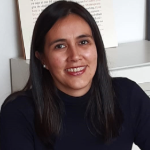
Veronica Floretta is a freelance Assessment Consultant from Uruguay with a background in TESOL. She has been working with assessment related topics since 2011 and holds a Master’s degree in Educational Assessment. Her book on Diagnostic Tests Validity was published by Editorial Académica Española in 2018.
Veronica is usually engaged in research regarding best practices in assessment for private regional stakeholders and national authorities in Uruguay. She also contributes to fellow teachers in their professional development journey.
As an Ambassador, she is keen on generating connections among assessment specialists worldwide, as the network offers an immense reach, depth of knowledge and opportunities to discuss and think deeply about assessment.
Breakout session: Impactful and holistic assessment design: a co-curriculum approach for supporting future graduate development
This session will explore the role and potential of assessment design as a process for developing graduates of the future. In particular it will look at ePortfolios as a vehicle for delivering this design, and how we can create an agile system to help prepare students for an unknown future.
In this talk, Mark will take an exploratory look at a degree education and explore the role of assessment as the ‘glue’ which, if designed correctly, can help bring a degree back together. Specifically, he will explore a structured approach to the design, delivery and assessment of the co-curriculum to support graduate development.
Mark Kerrigan, Director and Co-founder, Transform-ED Educational Consultancy Ltd.

Mark is an established academic leader with significant experience in quality enhancement and quality assurance. He is a strategic thinker, thought maker and an inclusive leader. Mark is a National Teaching Fellow, and Principal Fellow of the HEA. Mark holds a PhD from Edinburgh University, is a published researcher and an experienced PhD supervisor.
Mark has previously worked as an Associate Professor in Learning & Teaching (Allied Health) at Anglia Ruskin University, Dean for Learning & Teaching at Arts University Plymouth (Plymouth College of Art; member of the Senior Leadership Team) and the Director of Learning & Teaching for the Faculty of Medical Science at Anglia Ruskin University. Earlier in his career, Mark worked for the Educational Development Unit at the University of Greenwich and was a programme leader and Teaching Fellow for the University of Westminster. Mark is a co-convenor for the Society of Research into Higher Education, Newer Researchers’ Network and a Fellow of the Royal Society of Biology. He was a founding member and co-led the national Jisc-funded Change Agents Network and was the project manager for the Jisc-funded Digital Literacies in Higher Education project. Previously, Mark co-developed a new model of assessment feedback as part of the Jisc-funded project, Making Assessment Count and co-developed MapMyProgramme - an open-source tool to support the holistic design of assessment. In 2012, he was awarded a prize from ALT-C/Google for his Google work.
Breakout session: Live experiment - using AI to translate test items
How will various language translation tools hold up against live human translators?
In a post pandemic world and AI obsessed landscape, how might we make test items multilingual, in order to expand access to a global candidature while retaining test validity? In this live experiment, we will examine, on a small scale, the differences between AI translation and HI (human intelligence) translation. Drawing on experience in the SaaS (software as a service) digital context where platforms run updates on regular release cycles, meaning things are constantly changing, Gwyneth will frame the problem of language translation in the fast-paced SaaS world. We will then be able to experiment with digital item writing, another challenging context which requires regular updates, and participate in a live experiment in this interactive workshop.
Gwyneth Toolan, Innovation Product Manager, RM plc.
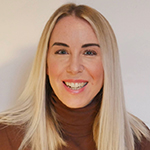
Gwyneth started her career in English teaching, working internationally, then basing herself in a variety of UK state schools doing diverse roles, including Head of Sixth form. After leaving teaching, Gwyneth moved into the assessment world at Cambridge International embarking on the Postgraduate Advanced Certificate in Educational Studies: Educational Assessment at Cambridge and managing syllabuses including Sociology, Psychology and Development Studies. This breadth of educational experience led her to work in innovation and training at RM, where she now leads on product strategy for technical content and customer training and onboarding. Last year Gwyneth was leading RM’s Assessment Malpractice service in the innovation department of RM, which went on to win an e-AA award for ‘most innovation use of technology in assessment’. Gwyneth is interested in the practical implications of AI, its limitations, and the need for all technological advancement to be underpinned by human intelligence, user testing, ethics and empathy.
Breakout session: The practical use of free LLM for item development
Kirsty has been working with assessment authors, experimenting on the use of AI to take some of the pain out of the process of developing items for assessment. In this session she will discuss some examples of how she has used free LLM (large language models) to develop items, and some of the opportunities and challenges within this.
Kirsty Parkinson, Assessment Development Manager, Chartered Institute of Procurement & Supply
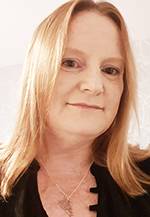
Kirsty Parkinson has been designing and developing assessments for the past 10 years and is currently Assessment Development Manager at the Chartered Institute of Procurement and Supply (CIPS). CIPS exams are global with learners based in the UK, Africa, the Middle East and Australia. Kirsty studied on the Postgraduate Advanced Certificate in Educational Studies: Educational Assessment, and is currently embarking on a Master’s in Education.